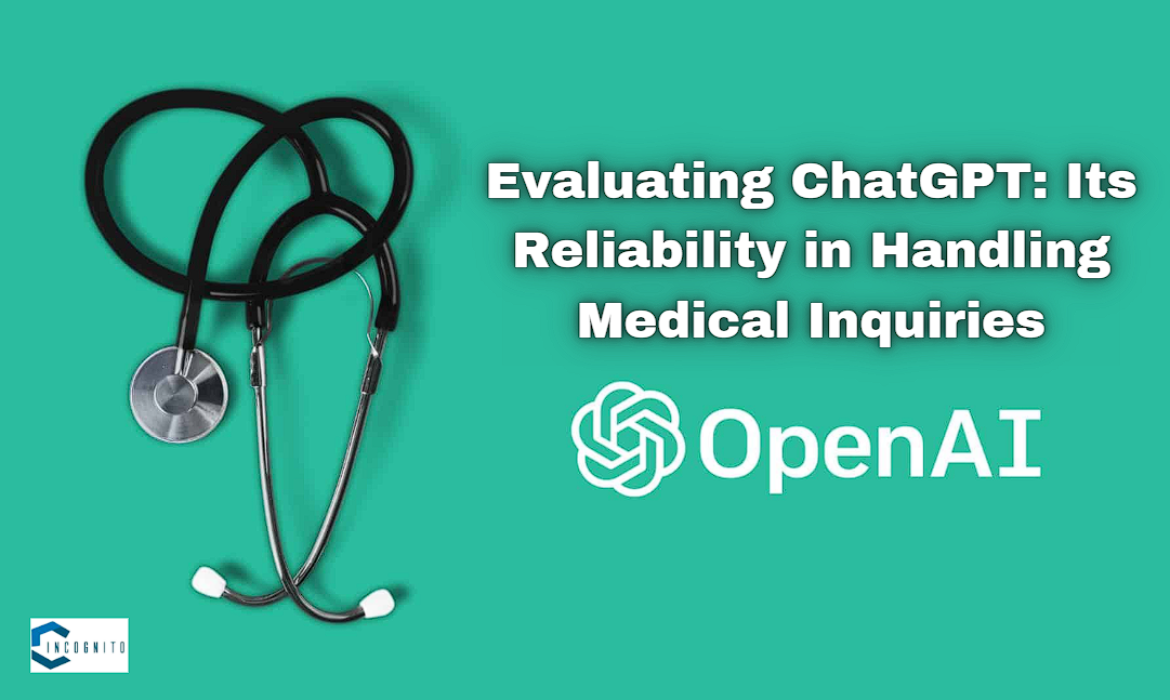
Integrating artificial intelligence (AI) in the medical field has opened up innovative avenues for enhancing patient care and operational efficiency. Among the AI models being explored, ChatGPT, a variant of the Generative Pre-trained Transformer, stands out for its potential in handling medical inquiries. This Topflight article delves into the reliability of ChatGPT in healthcare, examining its effectiveness, potential use cases, and the limitations that healthcare professionals should consider: https://topflightapps.com/ideas/chatgpt-in-healthcare/
ChatGPT Essentials
ChatGPT is an AI-driven language processing tool developed by OpenAI. It is designed to understand and generate human-like text based on the input it receives, making it a powerful tool for conversation-based applications. ChatGPT’s capabilities can be harnessed in healthcare to streamline interactions, provide information, and support clinical operations.
Reliability of ChatGPT in Medical Settings
Using ChatGPT for healthcare presents both opportunities and challenges regarding reliability. While it can process and provide information quickly, making it a valuable tool for administrative tasks, patient education, and initial triage, its reliability in clinical settings requires careful consideration. The AI’s responses depend on the data it has been trained on, meaning that inaccuracies in the training data can lead to errors in output. ChatGPT lacks the ability to understand the context or exhibit empathy as a human doctor would, which is crucial in medical diagnostics and patient interaction. Therefore, while ChatGPT can enhance efficiency and support healthcare services, it should be used as an adjunct to professional medical advice rather than a replacement. Qualified healthcare professionals should always supervise it to ensure the safety and accuracy of the health information provided.
Accuracy of Medical Information
The reliability of ChatGPT in providing accurate medical information is contingent upon the quality and scope of the data on which it has been trained. The model’s ability to parse complex medical terminology and contextually understand patient queries is crucial to its effectiveness. However, challenges exist due to the nuances of medical diagnosis and the need for personalized patient care.
Data Security and Privacy
The protection of patient data is critical in healthcare. ChatGPT’s implementation must comply with stringent data protection laws, such as HIPAA in the United States or GDPR in Europe. Ensuring that ChatGPT handles data securely without violating privacy regulations is essential for its adoption in medical contexts.
Response Time and Efficiency
ChatGPT can significantly reduce response times for patient inquiries, crucial in high-demand environments like hospitals and clinics. Its ability to provide quick, automated responses can improve efficiency and patient satisfaction. However, the reliability of these responses needs constant evaluation to ensure they meet clinical standards.
ChatGPT Use Cases for Healthcare
Several practical applications of ChatGPT in the medical field highlight its potential to revolutionize certain aspects of healthcare delivery:
Symptom Assessment and Triage: ChatGPT can assist in initial symptom assessment, providing patients with guidance on seeking professional care based on their symptoms. This application can reduce unnecessary doctor visits and streamline patient flow in medical facilities.
Patient Education and Engagement: ChatGPT can deliver personalized educational content to patients about their health conditions, treatment plans, and preventive measures, thereby enhancing patient engagement and compliance with treatment protocols.
Administrative Support: ChatGPT can handle scheduling appointments, processing refill requests, and answering frequently asked questions, reducing the administrative burden on healthcare staff.
Mental Health Support: ChatGPT can provide continuous, immediate support for patients needing fundamental therapeutic interactions or crisis management before professional intervention is available in mental health settings.
Medical Training and Simulation: ChatGPT can be used as a training tool for medical students and professionals by simulating patient interactions and providing a dynamic learning environment.
Challenges and Limitations
While healthcare ChatGPT use cases offer substantial benefits, several limitations and challenges must be addressed:
Dependence on Data Quality: ChatGPT’s outputs are only as good as the data it is trained on. Inaccurate or biased data can lead to misleading or harmful advice.
Lack of Empathy and Human Touch: ChatGPT cannot replicate the empathy and human connection that are often crucial in patient care, particularly in sensitive situations.
Regulatory and Ethical Concerns: There are ongoing concerns about the ethical implications of using AI in healthcare, including issues of consent and the potential for AI to make autonomous decisions about patient care.
Integration with Existing Systems: Integrating ChatGPT into existing healthcare systems poses technical and operational challenges, requiring robust IT infrastructure and training.
Future Prospects
As AI technology continues to evolve, the potential for ChatGPT’s integration into the medical industry looks promising. Ongoing improvements in AI models, coupled with better training datasets and interdisciplinary collaboration between AI experts and medical professionals, could enhance ChatGPT’s reliability and effectiveness in medical applications. More rigorous testing and validation in clinical environments will be essential to ensure that ChatGPT meets high medical standards.
Conclusion
ChatGPT in healthcare represents a significant advancement in medical service delivery, potentially improving both patient care and operational efficiency. Addressing the challenges and limitations associated with AI technology is essential for its successful integration into healthcare systems. With thoughtful implementation, continuous evaluation, and strict compliance with ethical and regulatory standards, ChatGPT could become a fundamental component of modern healthcare infrastructure.
Author:
Priya Raeesa
Priya is an experienced mobile app developer with a flair for simplifying complex concepts. Her articles aim to demystify the app development world and empower others to create innovative mobile solutions.



